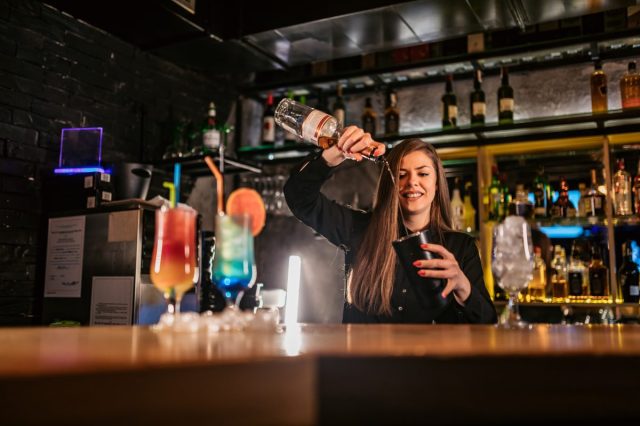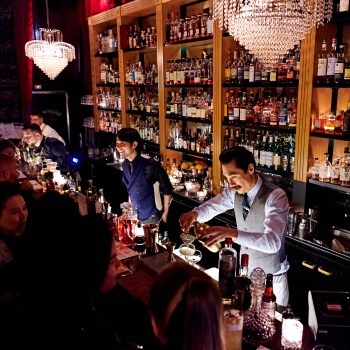CGA by NiQ’s recent Global Bartender Report provided key insights into the way that bartenders are approaching and progressing in their career within the industry.
In a webinar hosted by CGA, a panel of industry professionals gave insight into and advice on career progression and fostering upcoming bartending talent.
When discussing career progression options, 46 per cent of bartenders said they were interested in becoming a brand ambassador, and 56 per cent said they would like to own a bar.
Alex Zanarini, National Brand Ambassador at Moet Hennessey, explained the appeal of being a brand ambassador.
“For a lot of my time as a bartender, I wanted to be a brand ambassador. First and foremost, it’s a career path to look at once you run out of steam for working front of house and all those nightshifts. It’s also a great way to become part of something that’s bigger than yourself, to ally yourself with a big brand and everything that goes along with that, like the promise of big budgets and the ability to execute all these big ideas you’ve been cooking up over the years,” he said.
Trish Brew, Brand Ambassador for Fever-Tree, outlined some of the key skills that bartenders should look to develop if they are thinking of becoming a brand ambassador.
“What nearly stopped me from getting the job with Fever-Tree was that I had no PowerPoint or Excel skills or any of those corporate skills that you need in this role now. If you are wanting to take the step to becoming a brand ambassador, just learn the basics now. You will save yourself some pain down the track,” she said.
Another important avenue for career progression is developing a social media presence. While 41 per cent of bartenders never post on social media, 85 per cent agree it could help them and their careers.
“While social media isn’t on the job description for bartenders, it’s your responsibility to yourself and your own personal brand,” Alex said.
“One hurdle in getting started is that you see a lot of polished content online, so you feel like you don’t know how to use Instagram properly, that anything you post isn’t going to compare to that. You just have to get started, and then eventually, you get better, and your stuff starts to look good,” he added.
However, there is still a role for face-to-face connection and word-of-mouth renown.
“Every interaction is a moment where you can engage with someone, influence someone, or maybe find them the best drink they’ve ever had and get them thinking differently about mixing drinks. Just take every conversation as a way to be more connected with the industry and then eventually, you’ll be known for it,” Trish said.
Brands and venue managers can support emerging talent through training sessions, as well as involving staff in decision-making and venue operations. This is particularly the case when it comes to drinks creation, with 49 per cent of bartenders saying they already feel knowledgeable, and 48 per cent saying they would like to know more.
For Ashley Nash, Venue Manager at Osbourne Hotel, involving his staff in drinks creation is an important way to foster new talent.
“I ask each bartender to make a cocktail, we taste it in a meeting, and then we pick our favourites. The five favourites will then go on a bar top counter, and the top three sellers out of those five will go in the new cocktail menu. It gets the staff engaged, it gets them excited, it gets them using their brain and their creativity. These guys are going out most days, trying new cocktails. They’re seeing more than any of us are, so you might as well allow them to bring that knowledge forward and allow them to apply it,” he said.



